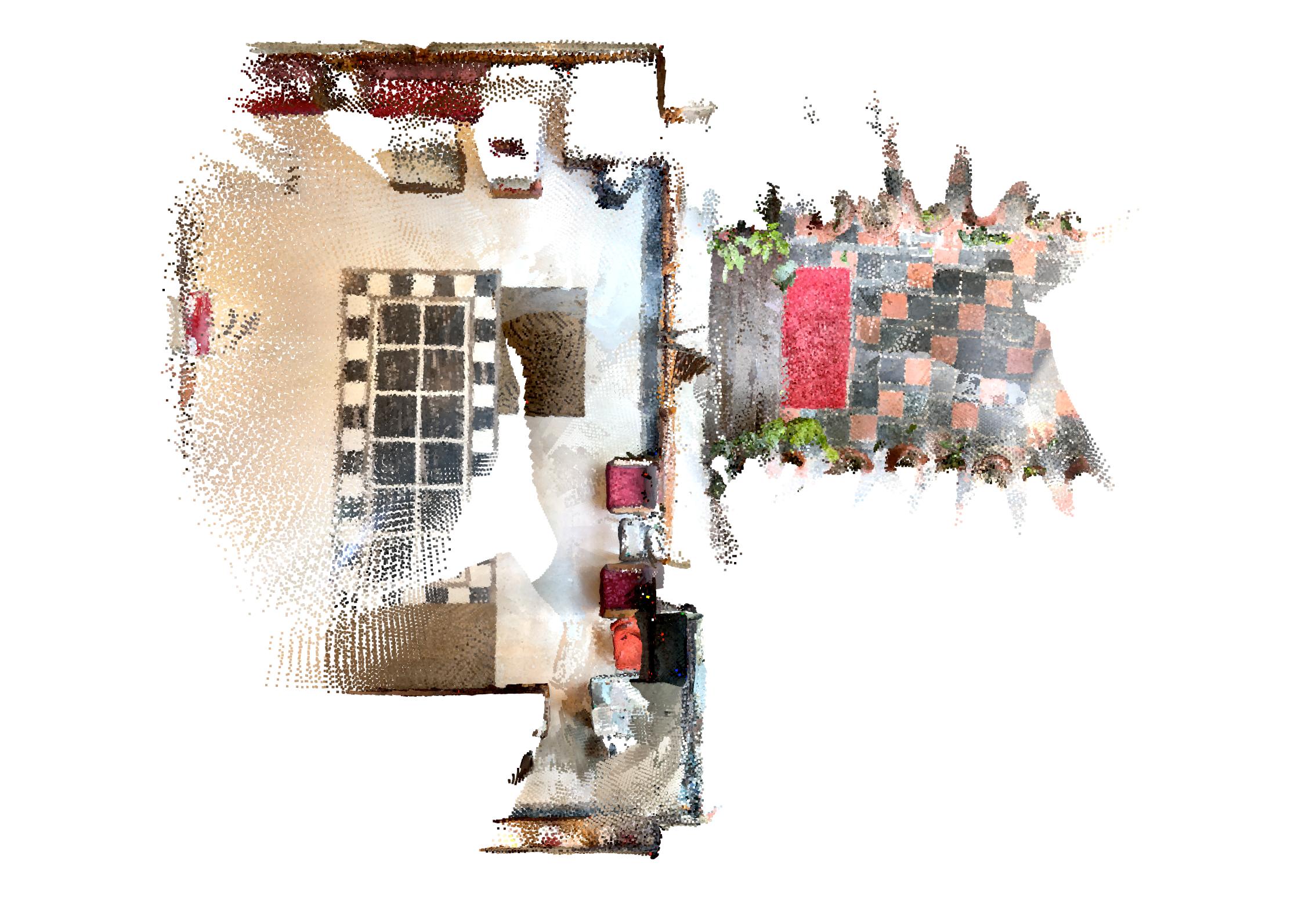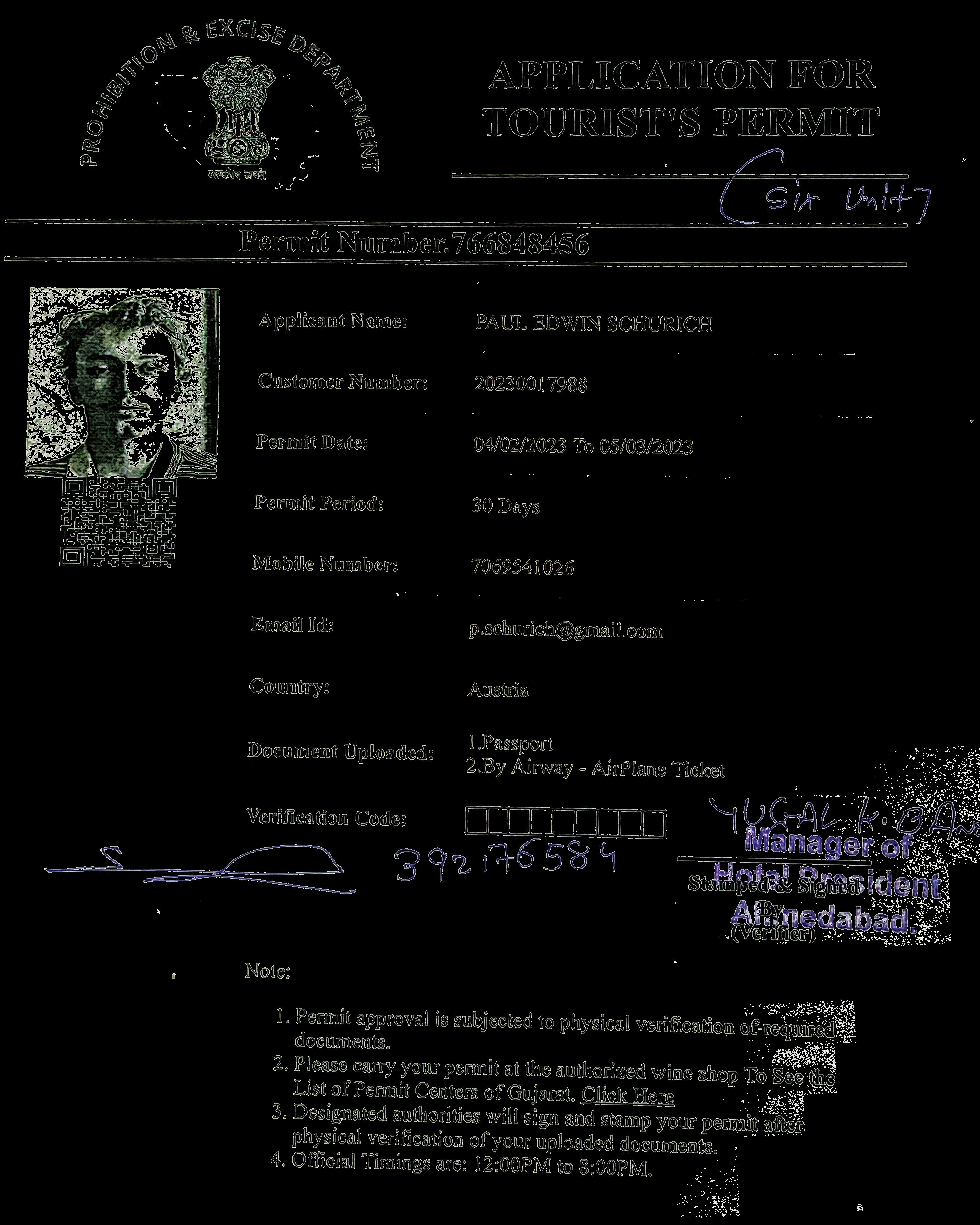The story of the Unseen in five fragments





 Paul Schurich
Paul Schurich






 Paul Schurich
Paul Schurich

The ubiquitous presence of substances of intoxication has shaped urban life since history is written. Alcohol and its venues, rules, laws, safety measures, violations and accidents, bars, nightclubs, restaurants, parties and festivals, have for many acted as enablers to formulate the most principal (or primal) concepts of togetherness. Our cities have formed over centuries around marketplaces, squares and harbours, all deeply connected with the classless enjoyment of “booze”. Now what if alcohol is taken out of the equation? In Ahmedabad, Gujarat the consumption of intoxicating liquids is banned since 1960 when the prohibition laws were formulated. However, even a thirsty stranger new to the city and unaware of its mechanisms will be quick to discover that the state of Gujarat is anything but a dry one. Knowledge of drinking licenses, acquainted smugglers, private parties and special hidden menu items will seep through whispered conversations and one does not take long to realise that the methods of dodging the ban of liquor are widespread and manifold.
Critical voices highlight the dangers of welldistributed moonshine, rarely even causing a deadly batch, when the wrong liquid chemical was used for its distillation, as urban legends recount.
Moreover, as local newspapers suggest, the prohibition is causing a massive loss of tax revenue for the state: liquor worth more than Rs 300 crore (¤ 33 million) was seized in Gujarat in the past two years. This number only hints at the unknown amounts of alcohol consumed by the 62.7 million Gujaratis and also points towards another issue: that the seizing of liquids brings liquidity to law enforcement. Accounts of bribery and corruption are numberless.
The metropolis, enabling and facilitating a most confusing palimpsest of events, spaces and hidden infrastructures is an ideal nurturing ground for all players who know how to utilise it.
Anything is possible in Ahmedabad.
The project Dry State aims to create personal insights into a vast web of the unseen.
Five fragments were selected; the desk, the store, the scooty, the wall and the apartment.
In a process I called Covert Mapping, I (partly secretly) created point cloud scans of the fragments, and conducted anonymous interviews with fellow students, who allowed me to record their provided information.
With the aid of the 3D scans and their analysis I will describe the implications and purposes of these fragments embedded into the untold story of this not-so-Dry-State.
Joel Goodman/LNP: New Year’s Eve in Manchester
President A Hotel, Ahmedabad
23.0350565 N, 72.5600247 E
The Tourist’s Permit, the official drinking license, organised by the Prohibition & Excise Department is issued through a number of luxurious hotels of the city. The date of entry into Gujarat must not date back longer than one month prior to the application. Furthermore, applicants are required to provide a travel itinerary (preferred by air), their visa and a proof of residency. This can be an obstacle, as neither hotel bookings, nor rental agreements are accepted. It is hard to believe, but only a a physical electricity bill (not older than 3 months) is accepted. Once the process, conducted over a desk next to the reception, is completed, the drinking license is printed and can be used in the hotel-owned liquor store for the following month. The purchasable amount is limited to six units; two units can be bought in 10-day periods. A unit consists, for example, of one bottle of hard liquor, twenty beers or two bottles of wine.
The shop offers a wide variety of foreign bottles, sold for two or three times their retail price.




Kolkata 22.572645 N, 88.363892 E
Through the conducted conversations I discovered that the main method of obtaining alcohol for students is by smuggling it through states that are free from prohibition. As many are not native to Gujarat, they privately import it from their home-states or other travel destinations. The neighbouring Rajasthan and not-too-distant Mumbai are notable origins. Luggage in buses entering Gujarat from Rajasthan will be subject to night-controls, thus, a badly hidden bottle will not make it to Gujarat. However, Duty-free-bought alcohol, smuggled into Ahmedabad through an airplane will effortlessly enter the city.

In Ahmedabad, the Honda Activa scooter, nicknamed “scooty” is a ubiquitous mode of transportation and the go-to-tool of bootleggers and buyers. In its storage compartment, the “dicky”, bottles will be briefly stored and transported from public hiding places to private ones. Bootleggers operate within territories, and usually have an agreement with their local policemen, giving them either a share of the “goods” or a bribe. Colloquially, hush money is called “hafta”. Anyone willing to buy alcohol, yet unaware of where to look, is advised to enquire at the boy’s hostel. They will be connected to a bootlegger, agree on an amount and transfer it via G-pay. Then a location will be communicated; a public hiding place, a rubble pile, a trashcan or a dark corner where the bottles will be found. In this case, bootlegger and client never meet.


Malek Saban Lake, Ahmedabad 23.0297610 N, 72.6332877 E
The area surrounding Lake Malek Saban is notorious for its connections to alcohol. A little distant from the Old City and urbanistically rather undeveloped, its fenced off and well-forested plots provide ideal spaces for bootleggers (who prefer secluded and untouched areas) to store their products and for distillers to conduct their practice. The middlemen allegedly climb over a partly broken wall, enter through its cracks or bribe the guards at a nearby gate to the seemingly empty park. In the case of Malek Saban, the aura of the unseen becomes most apparent: I did not dare to enter this obscure territory, and was only left to map the wall and imagine myself as a bootlegger, scanning for possibilities of entry and exit. I was advised by a fellow student, who had thoroughly researched the adjacent area and observed the aforementioned phenomena.
rubble pile
the Unseen ?
distilling broken barbed wire

a walled-off area with trees and shrubs
storage
little huts, wall is less high

ideal buffer zone brewing
village
gate and climbing possibility
temple

Satellite, Ahmedabad
23.0296662 N, 72.5241101 E
The student’s apartment is where the magic happens in Ahmedabad. However, the expensively bought or tediously smuggled alcohol is never abundant, even though widely-enjoyed. Beer is rarely seen at gatherings, as it is economically less interesting for smugglers; the unspoken weight-to-intoxication-ration does not pay off. Preferably, hard liquor will be found on the tables, floors and in the cups of grateful students. Shots are never consumed as punishment, but always as reward.
Bottles are few, yet highly valued.